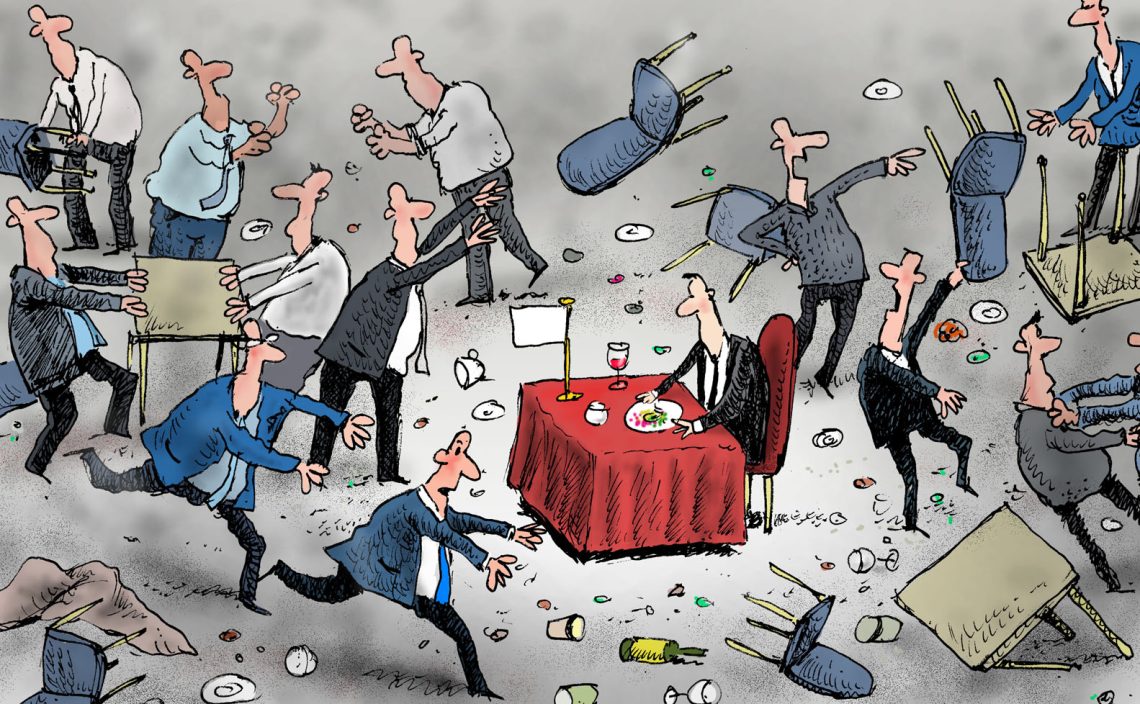The case for neutrality
Neutral states can play a key role in negotiations and ending conflicts.

In a recently published letter, European Union High Representative for Foreign Policy Josep Borrell said that Turkey’s “continued policy of not joining the EU’s restrictive measures against Russia is increasingly a cause for concern.” In his view, the EU must urge Turkey to change its trade policy with Russia.
Neutrality has been around as long as conflict between states. Sometimes this position is described as impartiality, nonalignment or maintaining a balance.
We have to remember that each country’s foreign and security policy should be a tool for guaranteeing the long-term freedom and prosperity of its population. Following this principle includes supporting other states and regions, as no country stands alone. But it does not require taking sides in conflicts. There might be sympathy for a specific side, but that does not always justify joining the fight.
Encyclopedia Britannica defines neutrality as “the legal status arising from the abstention of a state from all participation in a war between other states, the maintenance of an attitude of impartiality toward the belligerents, and the recognition by the belligerents of this abstention and impartiality. Under international law, this legal status gives rise to certain rights and duties between the neutral state and the belligerents.”
There might be sympathy for a specific side, but that does not always justify joining the fight.
This is the classic Swiss position, which has allowed it to frequently mediate between parties and has provided the environment for organizations like the International Red Cross to flourish. The IRC has been crucial in ensuring humanitarian aid in conflict areas, assuring proper treatment of prisoners of war and acting as a discreet facilitator for negotiations. The Vatican, another neutral state in conflicts, has also played an important role in helping to facilitate peace efforts.
There have been other forms of neutrality. During the Cold War, a group of nations declared themselves Non-Aligned. They were led by Prime Minister Jawaharlal Nehru’s India, Marshal Josip Tito’s Yugoslavia and President Gamal Abdel Nasser’s Egypt. At that time, what is known today as the “global south” played a lesser role in geopolitics. However, mediation by independent players was also less important, as Washington and Moscow had a hotline and continuously held formal and informal talks.
For larger negotiations, such as the Strategic Arms Limitation Talks (SALT), a neutral location was necessary. They took place in Geneva. Ever since the 1979 Islamic Revolution in Iran, the Swiss Embassy in Tehran has acted as a “protecting power” for the interests of Americans in the country.
New neutrality
In its original sense, the goal of neutrality was to keep countries out of armed conflicts. It did not account for other forms of warfare, including hybrid wars. Nor could it account for the weaponizing of finance, trade and the economy – which now happens mainly through sanctions, but also espionage.
Neutrality policy also found it difficult to handle the extreme levels of villainy and emotional scarring caused by the wars of the 20th and 21st centuries. These factors led to an intolerance for impartiality and an aversion to neutrality as classically understood. The attitude became: “You are either with us or against us.”
It is understandable that conflicting parties try to accumulate the greatest possible number of allies and inflict the most possible damage on the adversary. But to eventually find a resolution, a party that is above the fray is often necessary. Swinging the moral club against them is wrong.
Realism does not necessarily mean egoism.
There are two reasons for this. First, help is needed in negotiations and in organizing operations such as prisoner exchanges. Turkey received deserved praise for helping find a solution that allowed Ukraine to export grain. It gained the trust of both sides as a neutral arbiter even though it is a member of NATO. The deal was imperative not only for Ukraine, but also for hungry populations around the world.
The second reason is that taking sides simply may not be in the long-term interest of a particular country and its population. The country can then be sympathetic to a cause and offer humanitarian aid, but should not be obliged to take military, political or economic action. This is the case for many countries in the global south. Realism does not necessarily mean egoism.
During World War II, Swiss and Swedish neutrality was helpful in many humanitarian and political aspects. Nevertheless, both received some blame afterward for not having done enough. Later, in the Cold War, the nonaligned countries simply did not want to be included in one bloc or the other, which made sense considering their predicaments.
In the case of Ukraine, it is justified that most of the sympathy is with the smaller country bravely defending its independence against an aggressor. And most states in the global south feel this sympathy even if the governments have decided to remain formally impartial in the conflict. That understanding and solidarity does not impose a duty to intervene upon them, despite the frequent requests from Washington, Brussels and Kyiv.
Most countries endorse Ukraine’s independence and offer what help they can. Many do so while also retaining a policy of balance. Turkey has always been clear that it supports Ukraine’s territorial integrity, and has provided backing in other ways. But Ankara plays a critical role in maintaining lines of communication. It was a great success that it was able to facilitate the grain corridor and keep it open. In this case, Mr. Borrell’s remarks reveal a lack of judgment when it comes to the value of neutrality in general and a misunderstanding of the geopolitical context in particular.
